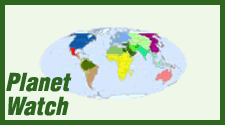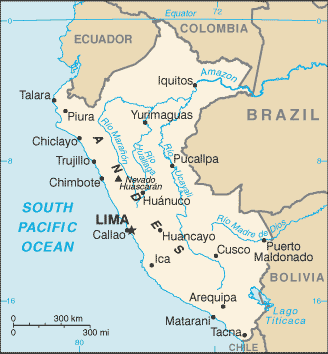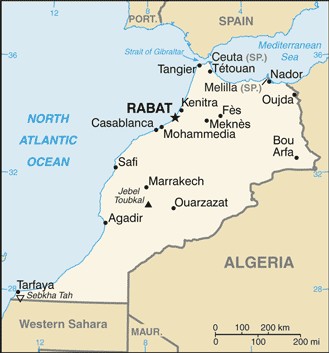 Turned down by the British government when they requested permission to use cannabis oil, the family of a child epilepsy sufferer personally delivered a petition with thousands of signatures to 10 Downing Street. They were backed up by members of parliament and the famous actor Sir Patrick Stewart. Charges of hypocrisy on the part of government were brought into sharp focus by revelations that the Home Office minister—ultimately responsible for the decision to turn down the request—is married to a businessman who oversees massive cultivation under contract to GW Pharmaceuticals.
Turned down by the British government when they requested permission to use cannabis oil, the family of a child epilepsy sufferer personally delivered a petition with thousands of signatures to 10 Downing Street. They were backed up by members of parliament and the famous actor Sir Patrick Stewart. Charges of hypocrisy on the part of government were brought into sharp focus by revelations that the Home Office minister—ultimately responsible for the decision to turn down the request—is married to a businessman who oversees massive cultivation under contract to GW Pharmaceuticals.

 Oakland's city council has passed an ordinance protecting tenants from being evicted by cannabis businesses in the city's "Green Zone." Artist housing in post-industrial areas is especially at risk. Oakland is committed to a policy of "cannabis equity," in which the cannabis economy is daylighted with a sense of social justice. But this does point to the dilemma of cannabis-fueled displacement—a phenomenon also reported from places like the more freewheeling Denver, which are less committed to principles of equity.
Oakland's city council has passed an ordinance protecting tenants from being evicted by cannabis businesses in the city's "Green Zone." Artist housing in post-industrial areas is especially at risk. Oakland is committed to a policy of "cannabis equity," in which the cannabis economy is daylighted with a sense of social justice. But this does point to the dilemma of cannabis-fueled displacement—a phenomenon also reported from places like the more freewheeling Denver, which are less committed to principles of equity. Oakland-based cannabis industry research firm
Oakland-based cannabis industry research firm  The process of working out implementing regulations for Peru's new medical marijuana program is now officially in extra innings, extending beyond the 60-day window that opened with the signing of the law in November. Advocates are still watching to see whether homegrown will be permitted or just lab-grown, and what constitutes a "laboratory." Meanwhile, despite this tentative progress, the cannabis-growing heartland of the Norte Chico continues to see big militarized police raids on campesino cultivation.
The process of working out implementing regulations for Peru's new medical marijuana program is now officially in extra innings, extending beyond the 60-day window that opened with the signing of the law in November. Advocates are still watching to see whether homegrown will be permitted or just lab-grown, and what constitutes a "laboratory." Meanwhile, despite this tentative progress, the cannabis-growing heartland of the Norte Chico continues to see big militarized police raids on campesino cultivation. The Dutch police association has released a lurid report asserting that the Netherlands is becoming a "narco-state," with authorities unable to keep ahead of criminal enterprises bringing illegal drugs into the country. There have in fact been some recent cases of grisly narco-violence in the Netherlands, of the kind more commonly associated with Mexico or Colombia. The report will provide further propaganda for opponents of the Dutch gedoogbeleid (tolerance policy) toward the sale of cannabis—but a link between that and the recent violence is dubious.
The Dutch police association has released a lurid report asserting that the Netherlands is becoming a "narco-state," with authorities unable to keep ahead of criminal enterprises bringing illegal drugs into the country. There have in fact been some recent cases of grisly narco-violence in the Netherlands, of the kind more commonly associated with Mexico or Colombia. The report will provide further propaganda for opponents of the Dutch gedoogbeleid (tolerance policy) toward the sale of cannabis—but a link between that and the recent violence is dubious. Over the past weeks, authorities in Morocco and Spain have unleashed sweeps against hashish smuggling networks, arresting hundreds. One ring was reportedly using Serbian ex-military helicopter pilots to ferry product across the Strait of Gibraltar. This heightened militarization is disappointing, as a legalization initiative in Morocco—the world's top cannabis producer—fell victim to political unrest and intrigues last year.
Over the past weeks, authorities in Morocco and Spain have unleashed sweeps against hashish smuggling networks, arresting hundreds. One ring was reportedly using Serbian ex-military helicopter pilots to ferry product across the Strait of Gibraltar. This heightened militarization is disappointing, as a legalization initiative in Morocco—the world's top cannabis producer—fell victim to political unrest and intrigues last year. A recent court decision regarding a seemingly prosaic controversy over the zoning of medical marijuana businesses in Detroit actually sheds light on issues of what some activists are calling "
A recent court decision regarding a seemingly prosaic controversy over the zoning of medical marijuana businesses in Detroit actually sheds light on issues of what some activists are calling " A new study published in
A new study published in 





Recent comments
2 weeks 3 days ago
2 weeks 3 days ago
5 weeks 4 days ago
6 weeks 3 days ago
10 weeks 3 days ago
14 weeks 2 days ago
18 weeks 2 days ago
19 weeks 20 hours ago
29 weeks 19 hours ago
33 weeks 1 day ago